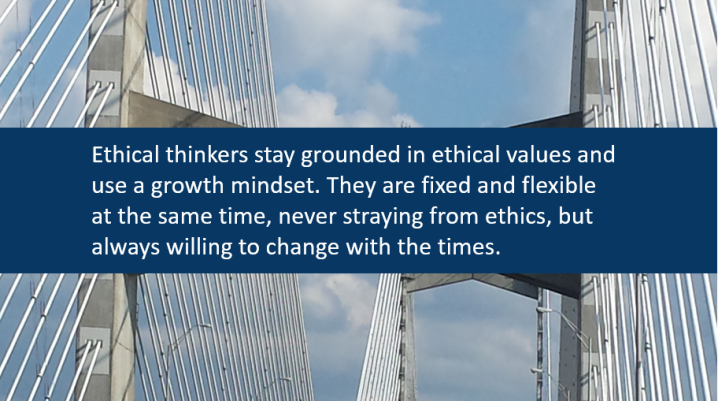
By Linda Fisher Thornton
One of the thinking traps that people can fall into is putting people into categories. This may result in assigning a derogatory label to the category, and making blanket statements about how “all people” from that category are a certain way.
Anytime we hear someone make a subjective (and negative) statement about how “all _____ people” are a certain way, that likely signals that they have fallen into the categorization trap. One of the ways we can prevent this thinking trap is to intentionally meet people who are not like us, and to get to know them at a human level. Doing that helps avoid the tendency to categorize people who aren’t like us – by reminding us that humans are unique and complex individuals.
Ethical leaders don’t dehumanize people to improve their own position. They are aware of their own thinking process. I have blogged before about the importance of taking charge of our thinking, and being aware of how it impacts our behavior, and how our behavior impacts our ethics.
Ethical thinking isn’t automatic. Ethical leaders make it a priority to stay aware of the human tendency toward bias and they actively manage their thinking. While so often the news headlines feature unethical behavior rather than responsible behavior (because it earns more views and more money), there are many ethical leaders who quietly manage their thinking and lead by example.

Unleash the Positive Power of Ethical Leadership
© 2009 – 2024 Leading in Context LLC
